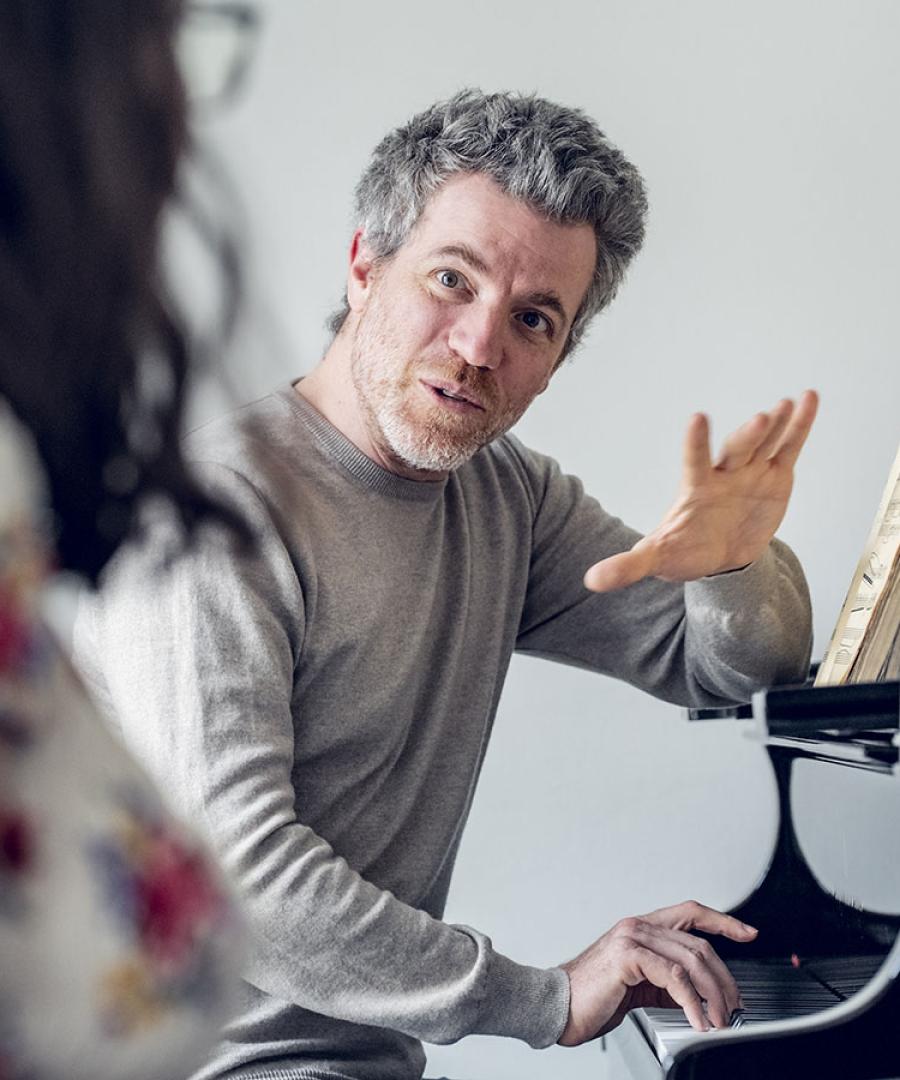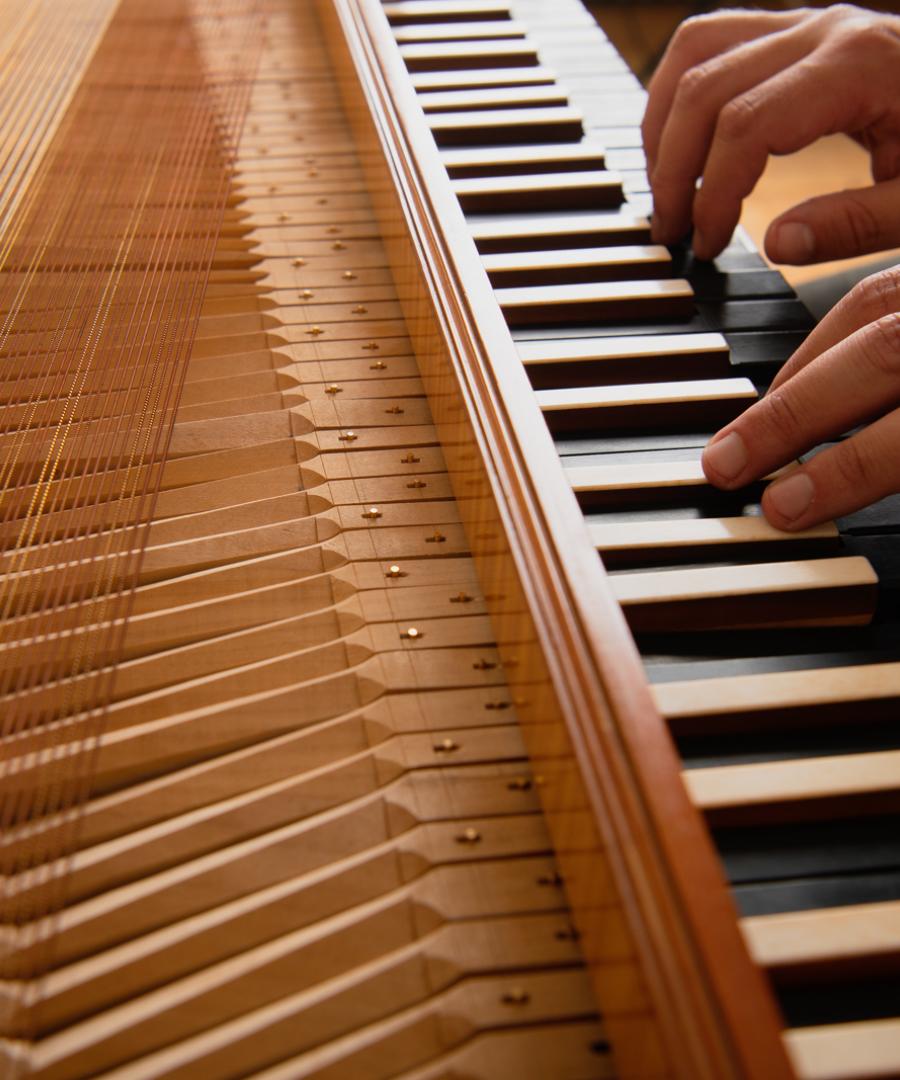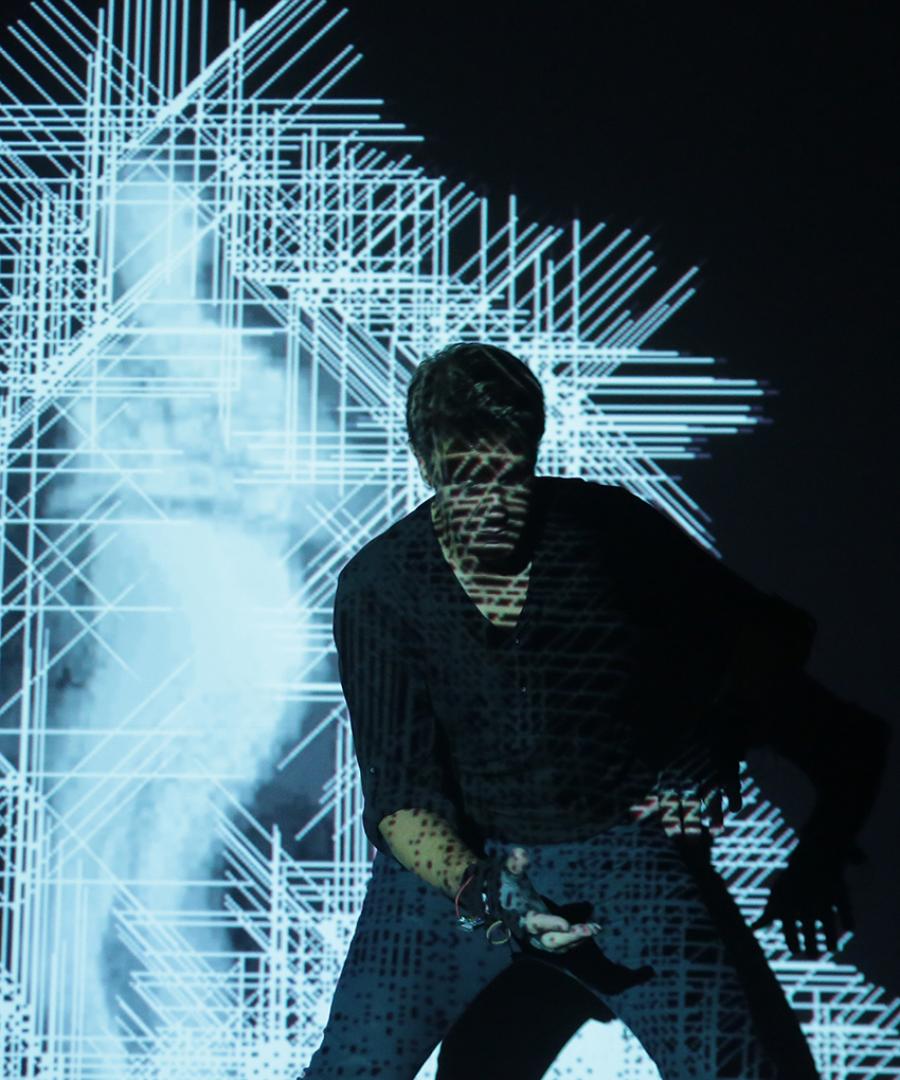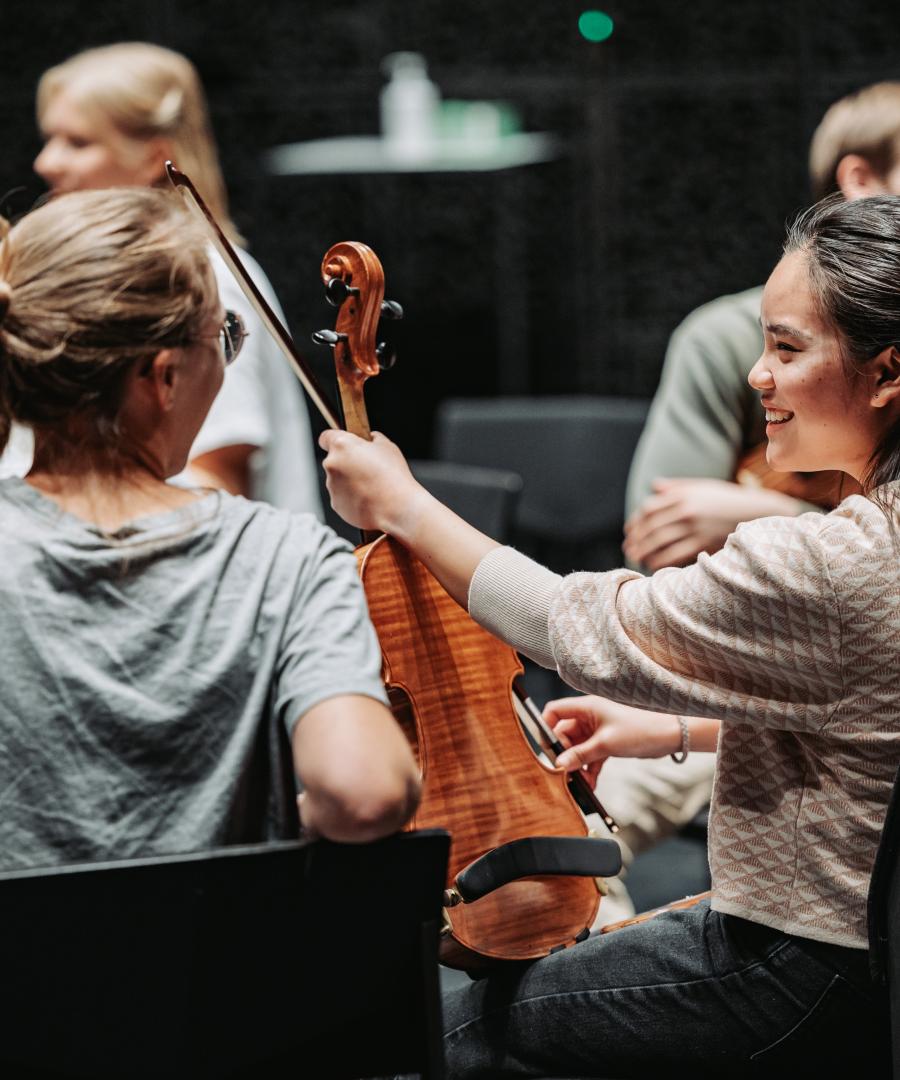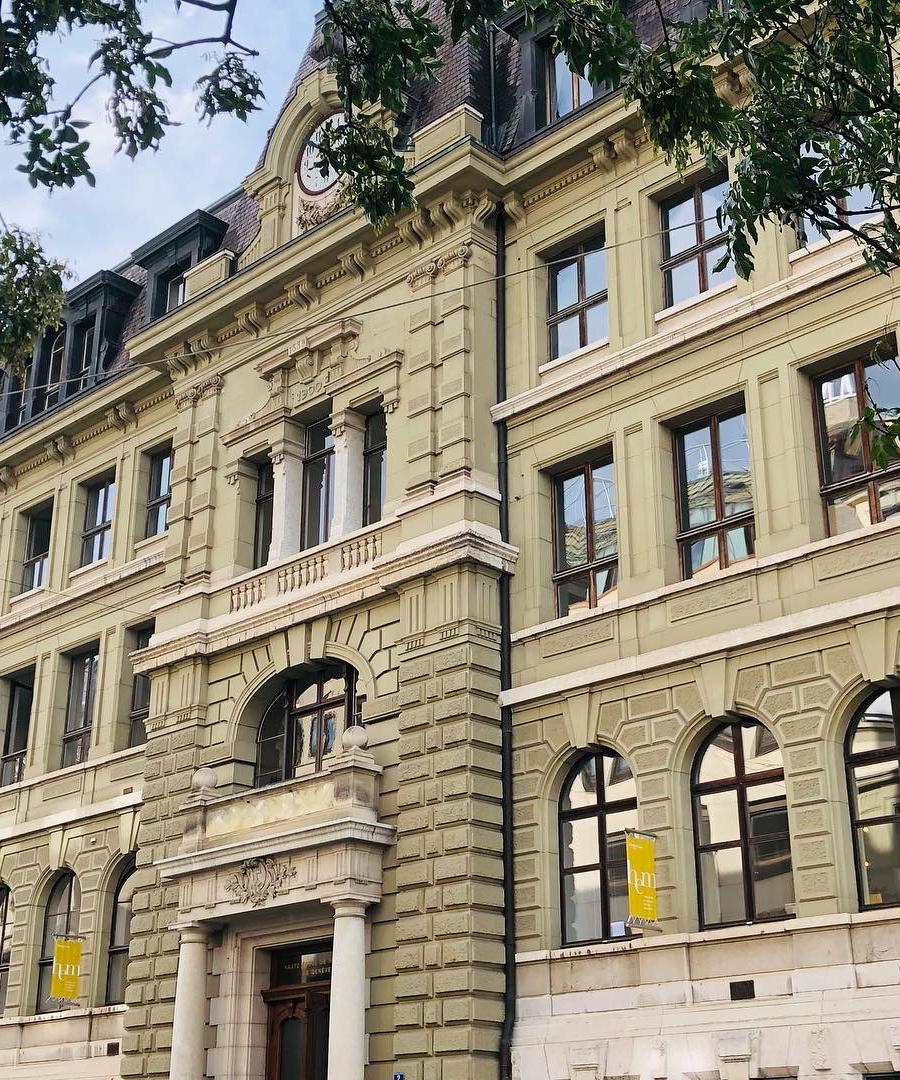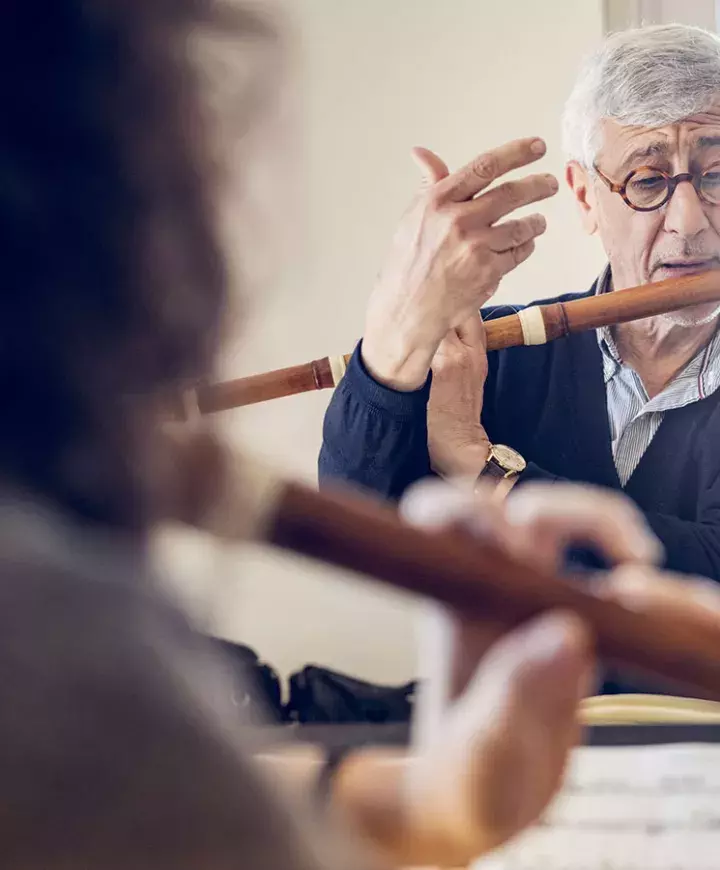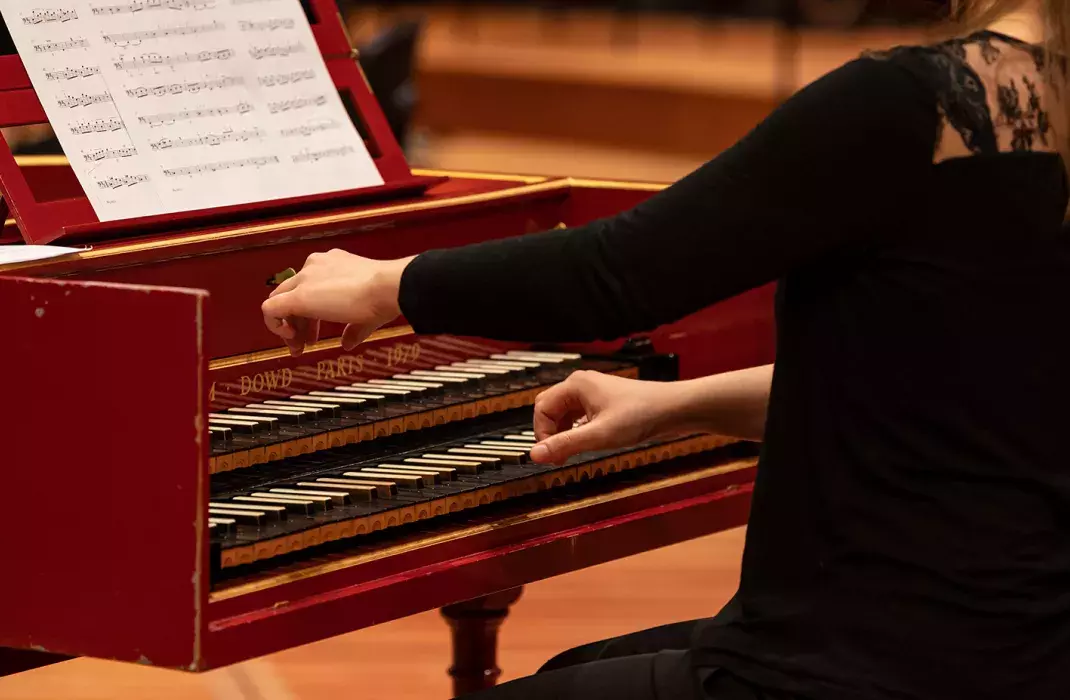- Studies
- Disciplines
- Research
- Events
- The school
Historical Instruments in Practice
This field, open to instrumentalists and singers with a classical background, enables them to specialize in the playing of historical instruments or in historical song.
The market for early music is constantly growing. Baroque orchestras and specialist music groups with variable configurations are always keen to find musicians capable of switching from Monteverdi to Beethoven and of interpreting repertoires that are very far removed from one another from a historical perspective.
This Master’s degree is essentially aimed at training musicians who intend to devote part of their professional activity to the playing of early music. The philological and theoretical training suitable for those studying early music is limited. The emphasis is placed on the practice of music and its specificities: playing techniques, ornamentation, improvisation.
Early keyboard instruments
An option for the playing of early keyboard instruments is also available. The primary discipline is then shared between two disciplines, chosen by students from among the following instruments: harpsichord, clavichord or pianoforte.
Study plan
Abbreviations :
e = marked exam
p = validation by participation
rs = internship report
ce = co-assessment
cc = continuous assessment
SA = autumn semester
SP = spring semester
A1, A2, etc. = level of the course (first, second year, etc.)
S1, S2, etc. = level of the course (first, second semester, etc.)
Admission criteria
The course is open to students who have obtained a Bachelor’s degree in music as instrumentalists or modern singers, and showing the potential to rapidly pick up the specifics of historically informed interpretation.
Study programme
Main training
This module is focused on the playing of the instrument chosen in a context of historic interpretation.
Special training
In this module, the student gets experience of performing music within ensembles playing music from the past, ranging from small chamber groups to larger groups. To acquire the degree of ease necessary for collective performance like this and the sense of style and improvisation required in order to perform early music, students are also invited to take classes in ornamentation, partimento and basso continuo.
Additional training
In this module, students can choose various BA courses run by the Department of early music, such as notation, rhetoric, counterpoint or solmization. Students are also free to choose their Master’s research workshop, and to choose how their preparations for the MA subjects will be implemented.
Master’s Project
During public productions, the candidates are asked to demonstrate their mastery of the historical instrument chosen, and the stylistic knowledge that enables them to tackle the historic repertoire. These productions will involve the services of ensembles and soloists alike. A dissertation showing critical thinking is also produced.
